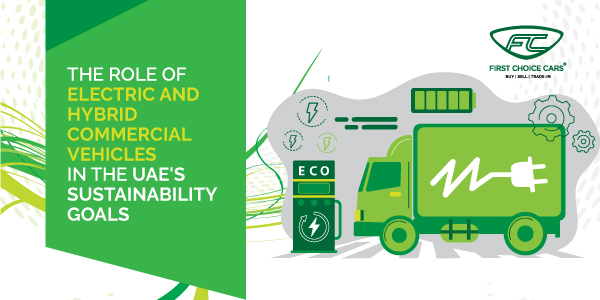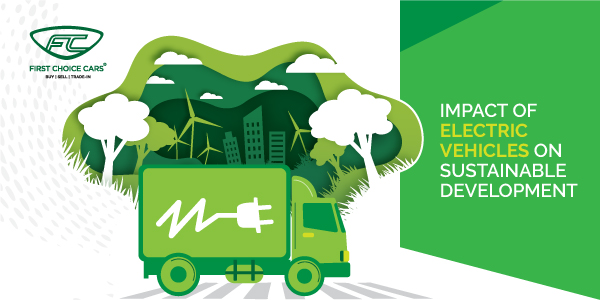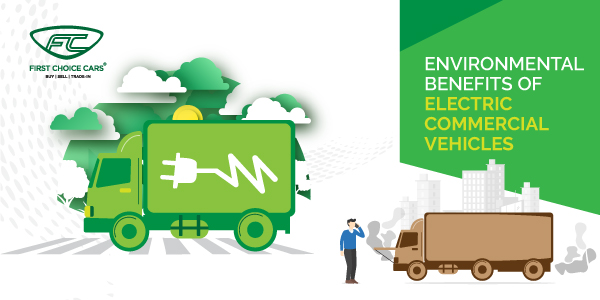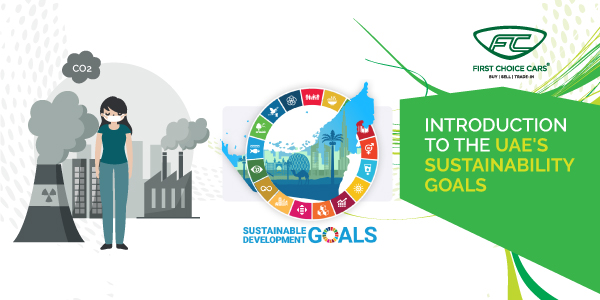The United Arab Emirates is a rapidly developing country that is heavily reliant on the use of commercial vehicles for transportation and logistics. With its rapidly growing economy and population, the UAE is also facing increasing pressure to reduce its carbon footprint and meet its sustainability goals. One way the country is seeking to achieve this is by promoting the adoption of electric and hybrid commercial vehicles.

In this blog post, we will explore the role of electric and hybrid commercial vehicles in the UAE's sustainability goals. We will discuss the impact of electric vehicles on sustainable development, the environmental benefits of commercial electric vehicles, the current state of commercial vehicles in the UAE, and the challenges facing the adoption of electric and hybrid commercial vehicles. We will also highlight government initiatives to promote electric and hybrid commercial vehicles and the future outlook for these vehicles in the UAE.
Electric vehicles have a significant impact on sustainable development. They have the potential to reduce greenhouse gas emissions, improve air quality, and reduce noise pollution. The use of electric vehicles also reduces the dependence on fossil fuels, which are finite resources.

In addition, electric vehicles have lower operating costs than traditional vehicles. This is because electric vehicles are more energy-efficient, and electricity is cheaper than gasoline. Electric vehicles also have fewer moving parts than traditional ones, requiring less maintenance.
Electric commercial vehicles have many environmental benefits. They produce zero emissions, which means they do not contribute to air pollution. This is particularly important in urban areas where air pollution can be a significant problem. In addition, commercial electric vehicles are quieter than traditional vehicles, which means they produce less noise pollution.

Electric commercial vehicles also have lower operating costs than traditional vehicles. This is because they require less maintenance and are more energy-efficient. In the long run, this can save businesses a significant amount of money on fuel costs.
The UAE has set ambitious sustainability goals to reduce its carbon footprint and promote sustainable development. The country aims to generate 44% of its electricity from renewable sources by 2050 and reduce its carbon footprint by 70% by the same year.

One of the key areas the UAE is focusing on is the transportation sector. The transportation sector is responsible for a significant portion of the country's greenhouse gas emissions. To reduce these emissions, the UAE is promoting the adoption of electric and hybrid vehicles, including commercial vehicles.
Dubai is actively promoting the adoption of electric commercial vehicles (EVs) to reduce greenhouse gas emissions and improve air quality. The Dubai Electricity and Water Authority (DEWA) has been leading this initiative by launching several programs and initiatives to encourage businesses to switch to EVs.
In addition to new commercial vehicles, there is a significant market for used commercial vehicles in the UAE. According to a ResearchAndMarkets.com report, the commercial vehicle market in the UAE is expected to grow at a CAGR of 5.5% from 2020 to 2027. The report also notes that the demand for electric and hybrid commercial vehicles is expected to increase in the coming years.
However, although the market has so far preferred gasoline or diesel-powered commercial used vans for sale to businesses, there is a growing interest in electric and hybrid commercial vehicles. One of the key programs is the Green Charger initiative, which provides free electric vehicle charging stations to businesses and government entities. DEWA has installed more than 300 Green Charger stations across Dubai, and the number is expected to increase significantly in the coming years.
Between May 2021 and the end of 2022, the number of charging stations in Dubai increased significantly from 530 to approximately 620, indicating a substantial rise in demand for electric vehicles. This trend is in line with the Dubai Government's projection to have around 42,000 electric cars on its roads by 2030.
Electric and hybrid commercial vehicles offer several benefits over traditional gasoline and diesel-powered vehicles. These benefits include:




Currently, most businesses in UAE opt for commercial used cars powered by gasoline or diesel engines. However, the UAE government has launched several initiatives to promote the adoption of electric and hybrid commercial vehicles. These initiatives include:




With the increasing availability of charging infrastructure and the growing popularity of EVs, it is likely that we will see more and more businesses switch to electric vehicles in the coming years.
Despite the benefits of electric and hybrid commercial vehicles, there are several challenges facing their adoption in the UAE. These challenges include:
Despite the challenges facing the adoption of electric and hybrid commercial vehicles, the future outlook in the UAE is positive. The government is investing in the development of EV charging infrastructure and promoting the adoption of electric and hybrid vehicles through incentives and procurement policies. While there are still challenges to overcome, the country's support and commitment to promoting clean transportation solutions predict an optimistic future of sustainable transportation in the UAE.
The adoption of electric and hybrid commercial vehicles is an important part of the UAE's efforts to reduce its carbon footprint and promote sustainable development. These vehicles offer significant environmental benefits, including reduced emissions and noise pollution and lower operating costs.
Despite the challenges facing their adoption, the UAE government is taking steps to promote the adoption of electric and hybrid commercial vehicles. As the infrastructure for these vehicles continues to develop, we can expect to see an increase in their adoption in the UAE, helping the country to achieve its sustainability goals while providing benefits to businesses and individuals alike.
